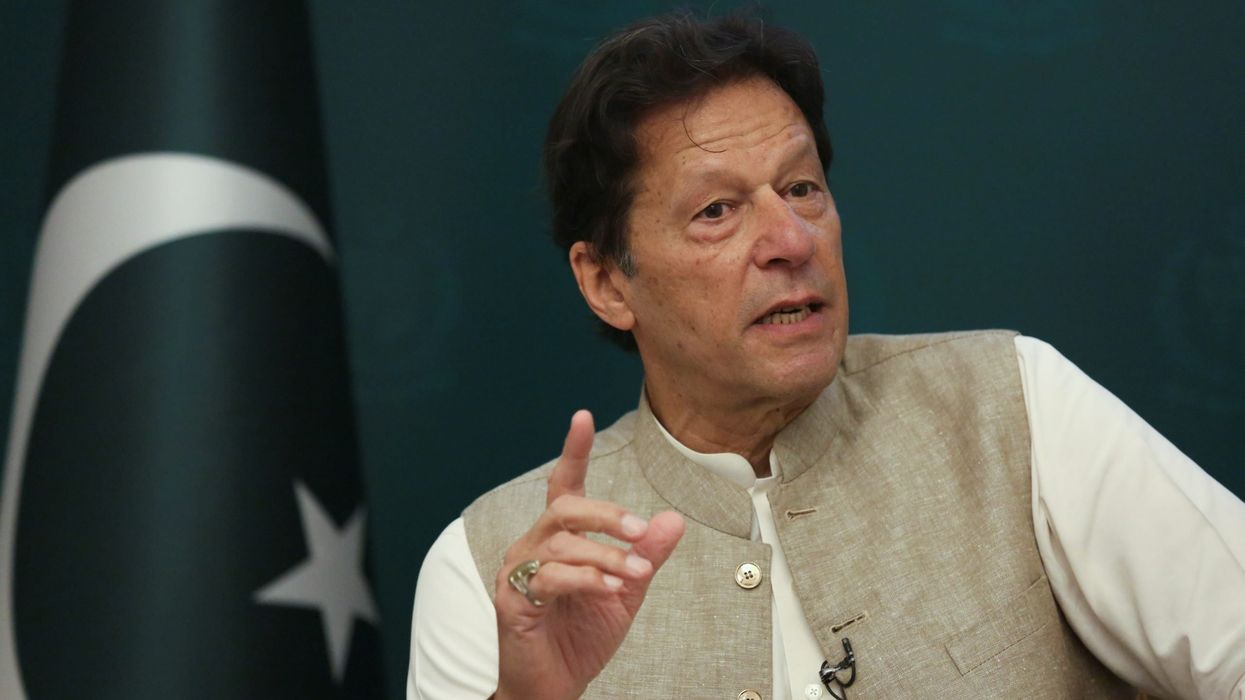HOUSEWIFE Maira Tayyab has considered begging for money to feed her family in inflation-hit Pakistan, while shop owner Mohammad Hanif finds his thoughts turning to crime.
They're too proud and honest to act on the impulse, but their woes are shared by millions of Pakistanis whose disgruntlement threatens prime minister Imran Khan's chances of re-election next year.
"We cannot beg as we are white-collar people," Tayyab, 40, said in Karachi, Pakistan's financial capital.
But, she said: "We don't know how we make ends meet."
Inflation hit about 10 per cent last year, according to the World Bank. The cooking oil price is up 130 per cent since Khan took power.
Tayyab's sentiments are echoed by Kursheed Sharif, a 50-year-old mother of five, who unleashes a slew of curses as she describes her family's woes.
"Only death seems an alternative to survival under this government," she said, close to tears, outside her unplastered rental shack.
Khan promised to sweep away decades of entrenched corruption and cronyism when his Pakistan Tehreek-e-Insaf (PTI) party swept to power in 2018.
But his failure to deliver is already being felt at the polls, and last month the PTI was thrashed in provincial elections in its Khyber Pakhtunkhwa stronghold.
"The government boasts about its economic feats, but in reality, it has lost its ground and credibility," said Tauseef Ahmed Khan, a rights activist and political commentator.
“Inherited a mess”
Khan had campaigned on the promise of creating an Islamic welfare state, with efficient taxation on businesses and individuals funding social projects to benefit the poor.
Analysts admit he inherited a mess - and the Covid-19 pandemic has not helped - but his policies have done little to change the state of affairs.
"Nothing is stable," said Rashid Alam, who works for an international bank in Karachi.
"Increased unemployment, increased inflation... this is the political and economic reality in Pakistan."
The numbers bear him out.
Although the economy is forecast to grow four per cent in 2022, for the past three years it has remained largely stagnant.
The rupee has also taken a pounding, losing 12 per cent to the dollar since July - not helped by a $5 billion (£3.66 bn) trade deficit, and despite forex remittances from a vast diaspora growing nearly 10 per cent to $12.9 bn (£9.46 bn).
Khan argued this week that Pakistan's problems - specifically inflation - were not unique, saying it remains "one of the cheapest countries" in the world.
There are some pluses.
The manufacturing and service sectors are rebounding as lockdowns ease, the World Bank has said, and better rains this year will boost agriculture.
But the biggest problem facing the economy is servicing nearly $127 bn (£93.09 bn) in debt.
Khan successfully negotiated a $6 bn (£4.40 bn) International Monetary Fund (IMF) loan package in 2019, but only a third was paid before the tap turned off after the government failed to implement promised reforms - including slashing subsidies on a range of essentials.
Pakistan had to accept painful conditions, such as increasing petrol and electricity prices.
Ahead of an IMF meeting later this month to decide whether to release another tranche, the government has pushed through a mini-budget - with new or increased taxes on a range of imports, exports and services - that has drawn the ire of millions.
"Can you imagine oil and sugar prices reaching this level?" housewife Sharif lamented.
“Criminal thoughts”
On the brink of defaulting, Islamabad has recently tapped $3 bn (£2.2 bn) each from China and Saudi Arabia, and $2 bn (£1.47 bn) from the United Arab Emirates.
"All the loans it has been taking now, from whatever sources, are to pay past loans," said Qaiser Bengali, an independent economist.
"Essentially the economy is bankrupt. Pakistan cannot pay its loans."
Still, nobody seems prepared to pay for services they want.
Tax evasion is almost a national sport - fewer than two million people paid in 2020, from a working population 25 times that - and receipts account for less than 10 per cent of gross domestic product, the lowest in the region.
That sort of chicanery prompts Muhammad Hanif, who runs a small car-battery repair shop, to think of new ways to support his family.
"(Criminal) thoughts occupy me as to how I must meet ends," he said.
"But I fear Allah, so I shrug off those thoughts."
(AFP)
Pakistan's economic woes put Imran Khan's future in doubt













